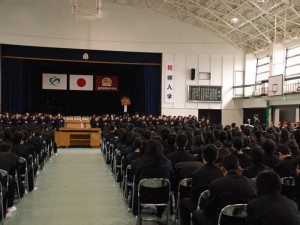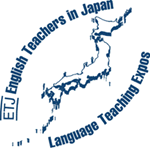ALTs ES expectations high school junior high school kids public policy teaching
by sendaiben
15 comments
36,000 JET ALTs a year?
I saw this mentioned in the news last week, and a post on Mutantfrog Travelogue reminded me of the story just now.
I have a lot of history with the JET Programme. I first came to Sendai on JET, had three great years in junior high schools and an elementary school, then was involved in running the Miyagi program as the Chief ALT Advisor for four years. I think I saw the best and the worst of JET.
The best thing about JET is that it has the potential to take intelligent, educated, energetic, and motivated people and put them in a position where they can interact with, inspire, mentor, and befriend Japanese children and teachers. When this works it works incredibly well, and I have had the pleasure of working with some exemplary JETs in my time.
The worst thing about JET is when teachers and schools are not supportive, don’t provide clear working guidelines or support their ALTs, and host institutions are unwilling to actively manage JETs and provide feedback and discipline where necessary.
Assistant Language Teachers on the JET Programme are assistants. They are able to help, support, and contribute to classes when their colleagues and schools work to make that possible. Like many things in English education in Japan, training and implementation are going to make most of the difference, not spending more money or deciding to put an ALT in every school (whether they want one or not). There seems to be an expectation that ALTs should be radically improving English education in Japan, but to me that is like saying that the new textbooks should magically do that. It’s not going to happen unless the teachers and schools facilitate and allow it to.
In the spirit of my ‘if I ruled the world’ blog posts from last month (on elementary school, junior high school, high school, and university English education in Japan) I am going to come up with some suggestions for the JET Programme on the blog tomorrow.
In the meantime, what do you think about the proposal to double JET numbers? Any good or bad experiences with JET? Please leave a comment below.
curriculum expectations junior high school language courses public policy
by sendaiben
14 comments
If I ruled the world… junior high school English in Japan
This is the second of four posts on how I would improve English education in Japan. Today I am going to be looking at English in junior high school. You can see my thoughts on elementary school English here.
The Current Situation
Junior high school is where serious English study begins. The course of study starts off reasonable (most students can use the English they learn in the first year) but by the middle of the second year the learning curve is too great and it becomes an academic exercise instead of learning to use the language. Many teachers just go through the textbook page by page, with the occasional activity or worksheet thrown in for variety. Classes are large (35-40 students) and passive: students listen to explanations and take notes a lot of the time.
My Thoughts on the Current System
Junior high school English has a bad reputation in Japan. Some of the problems at elementary school (particularly the guidelines against teaching reading and writing) are a direct result of MEXT trying to make sure that classes there are not in the same style as JHS English. Some of this is structural (the large classes, the high school entrance tests) and some situational (overworked teachers and unimaginative materials). Many students start off excited to be learning English, but by the end of the second year the increasingly difficult classes mean that a large number of them are lost and frustrated.
My Recommendations
I want to focus on specific measures that could be implemented fairly easily. Here is my list:
- Improve teacher training
Many teachers at junior high school mean well but did not receive sufficient training pre-service and are not incentivised to pursue further training after they start working. There is a real need for both incentives and opportunities for teachers to develop their teaching skills and their language skills. This should include local training within schools and local areas and internationally, with some teachers being sent on teacher training and language courses abroad. These teachers should then become trainers to spread the new knowledge within their school and local areas. - Hugely increase understandable input
At the moment junior high school students get very little English input (often just their textbooks and the odd handout). Introducing extensive reading and listening, both on- and off-line, would make a big difference to students’ skills and motivation. Students should be listening for meaning from the first grade, and reading for meaning from the middle of the first grade. A large amount of comprehensible input would allow students to use the words and grammar they study, and cement their knowledge of them. Graded readers and online listening (accessible through mobile phones or computers) would not cost very much compared to the potential benefits. - Have students work on productive skills
Students also need to produce language, both spoken and written. Currently students have few chances to speak, and even fewer to write. If students have a chance to try to produce personalised language they are much more likely to be able to use it later. Students should be producing short dialogues, presentations, and writing assignments regularly. - Teach students how to learn
Most students do not know how to learn a language, and few schools specifically instruct them on this key aspect. At the start of English classes, and regularly throughout the three years, students should have the chance to learn about and practice key language learning skills, such as how to use a dictionary, how to learn vocabulary using flashcards, how to learn vocabulary in context, how to find English content online, etc. - Reduce class sizes
With the falling population many schools are finding they have extra classrooms and teachers. Instead of merging schools and closing them, the government should seize this chance to reduce class sizes from the current standard of 40 to something more in line with the rest of the OECD: 20-30 students per class.
What do you think? Would the five suggestions above be enough to improve English education in junior high school? Have I overlooked anything?
blogging curriculum EFL ES expectations high school junior high school public policy teaching university
by sendaiben
leave a comment
I have a dream… for Japan’s English education
I was very negative about the Japanese government’s proposal to use TOEFL to screen university applicants. It’s easy to criticize, to offer up reasons why things won’t work. It makes you feel important, contributing to the conversation in that way. It even feels productive sometimes, like you are saving people from making mistakes.
I still think indiscriminately imposing the TOEFL test on students in Japan is a flawed idea, and next week on this blog I am going to offer up some alternatives.
I will post my suggestions on how I think English education in Japan can be improved at the primary (elementary school), secondary (junior and senior high school), and tertiary (university) levels.
And then you can all have a go at criticizing me 🙂
* give yourself a pat on the back if you know who the guy in the picture is
EFL eikaiwa ES expectations extensive reading junior high school language courses Language learning oxford owl Oxford Reading Tree presentations school management teaching young learners: EFL phonics reading teaching teaching English in Japan
by sendaiben
leave a comment
Okayama and Osaka Oxford Teaching Workshops
I would just like to thank everyone who turned out for the Okayama and Osaka Oxford Teaching Workshops. I had a great time meeting and talking to you, and the many questions really helped me see where my presentation needs more work 🙂
As promised, here are the slides I used for my presention
Please feel free to get in touch if you have any questions.
conference EFL eikaiwa elllo ETJ high school JHS junior high school language courses Language learning materials online resources oxford owl popjisyo presentations renshuu rikai self-study teaching technology TED university video
by sendaiben
leave a comment
Tohoku (Sendai) ETJ Expo -Sunday December 2 at Tohoku Bunka Gakuen University
I’ll be presenting at the ETJ Expo in Sendai this weekend, talking about useful online resources to help students study more effectively.
The schedule for the event is here, and the map/directions are here.
My workshop is at 12:30 -hope to see you there!



